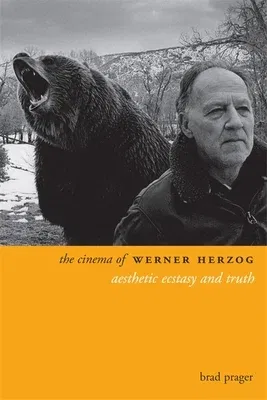Brad Prager
(Author)The Cinema of Werner Herzog: Aesthetic Ecstasy and TruthPaperback, 19 November 2007

Qty
1
Turbo
Ships in 2 - 3 days
In Stock
Free Delivery
Cash on Delivery
15 Days
Free Returns
Secure Checkout

Part of Series
Directors' Cuts
Print Length
224 pages
Language
English
Publisher
Wallflower Press
Date Published
19 Nov 2007
ISBN-10
1905674171
ISBN-13
9781905674176
Description
Product Details
Author:
Book Format:
Paperback
Country of Origin:
PL
Date Published:
19 November 2007
Dimensions:
23.37 x
16.15 x
1.78 cm
ISBN-10:
1905674171
ISBN-13:
9781905674176
Language:
English
Location:
New York
Pages:
224
Publisher:
Series:
Weight:
399.16 gm